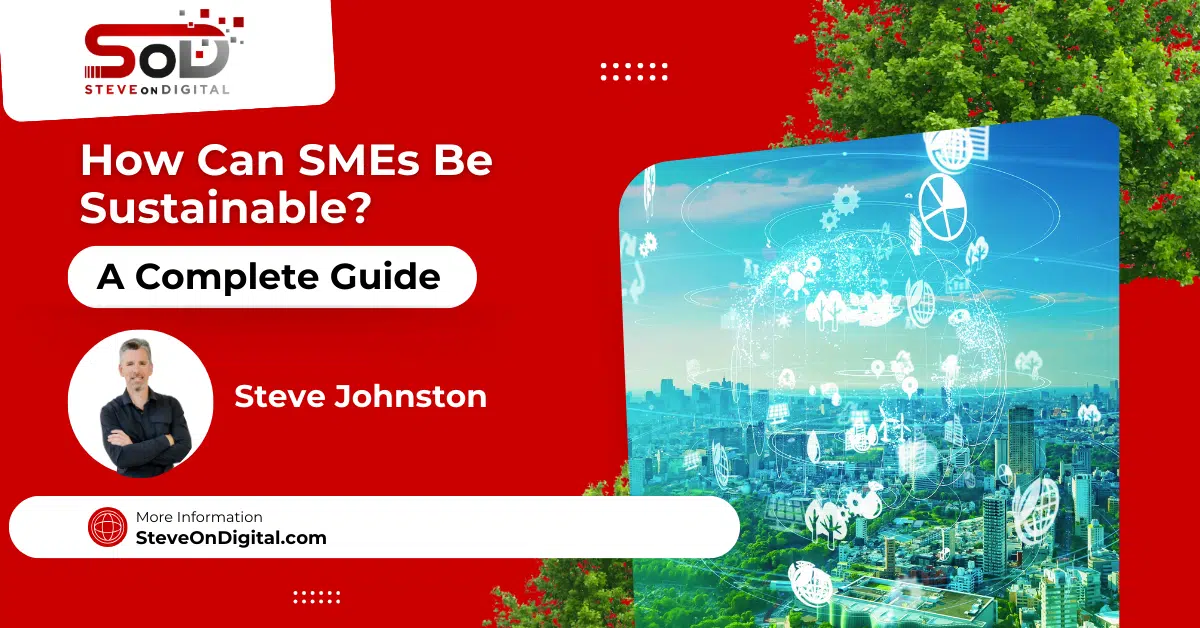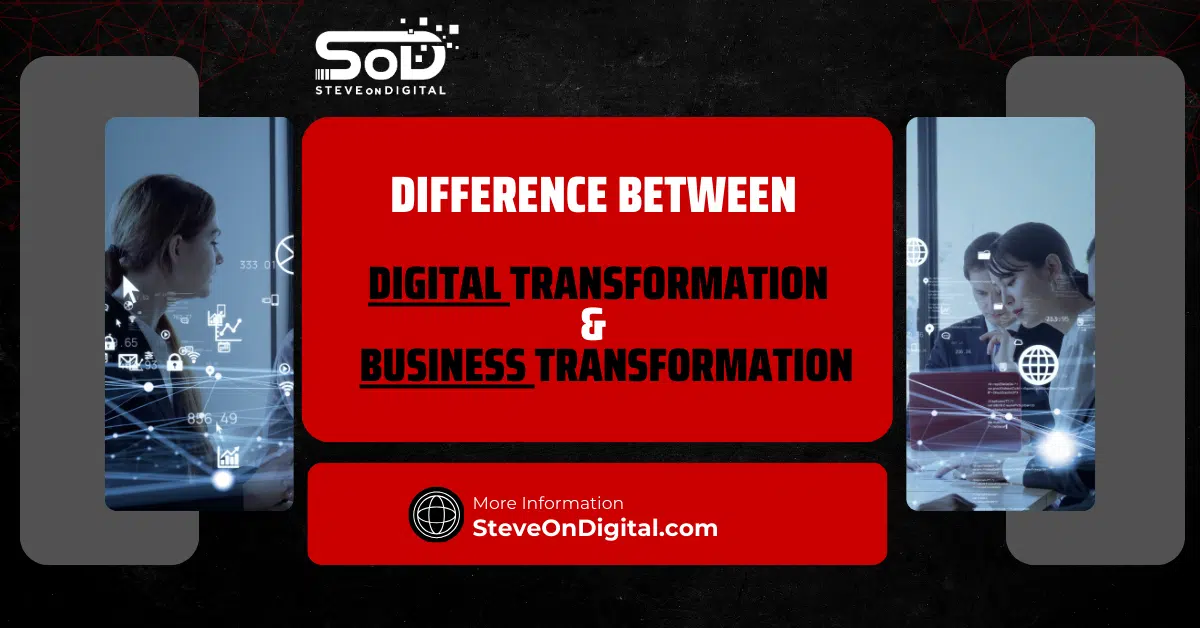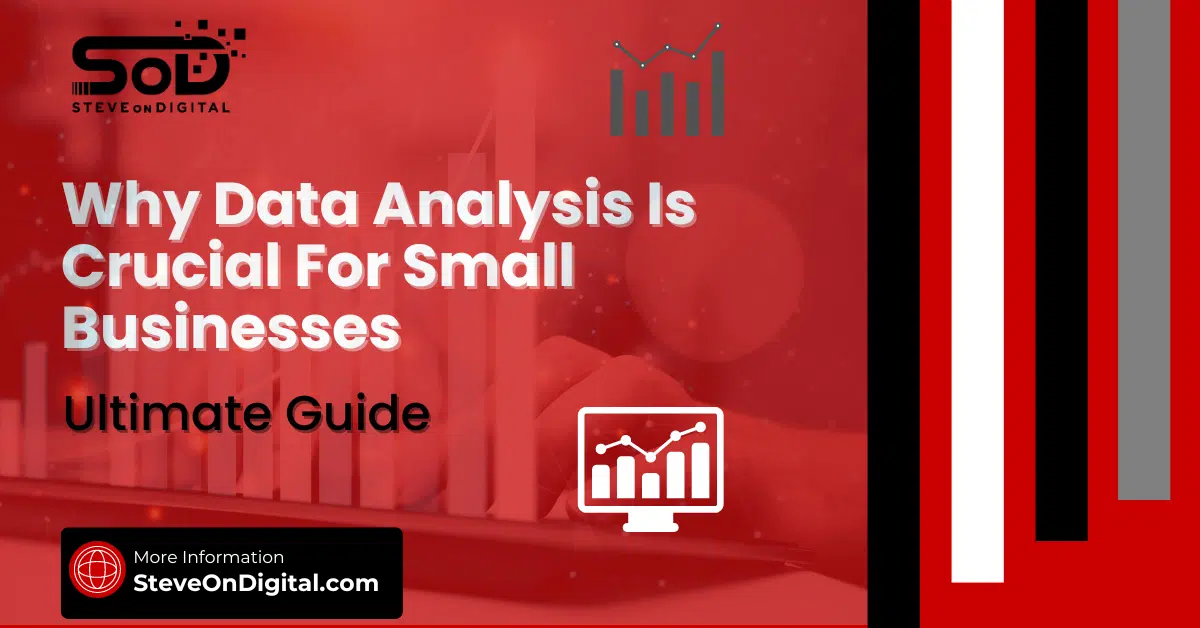Hello there! I’m Steve Johnston, the mind and hands behind SteveOnDigital.
Today, we’re diving into a topic close to my heart and crucial for all of us running small and medium-sized enterprises (SMEs): sustainability.
Having navigated the digital landscape and seen first-hand the shifts in consumer behavior and regulatory demands, I’ve grown increasingly committed to steering businesses towards sustainable practices.
Let’s explore how SMEs like ours can not only thrive but do so responsibly.
Addressing environmental and social challenges is fundamental for SMEs, emphasizing the global importance of our role in sustainability and the fight against climate change.
Why Sustainability Is Crucial For SMEs
In our world today, sustainability is no longer a nice-to-have; it’s a must-have.
As an SME owner, I’ve observed a significant uptick in both the challenges and opportunities presented by adopting sustainable practices.
Here’s why it’s essential:
- Environmental and Social Pressures: Climate change and resource scarcity are realities that affect us all. For businesses, these aren’t just global issues but local business pressures too. Reducing our carbon emissions and minimizing waste aren’t just good for the planet; they’re demanded by our customers and communities.
- Consumer Demand: More and more, customers are voting with their wallets. They seek out businesses that don’t just sell products but stand for something. In my experience, attracting environmentally conscious customers isn’t just good ethics; it’s good business. It turns out, doing good can also be profitable.
- Market Resilience and Sustainable Growth: Adopting sustainable practices isn’t just about being good corporate citizens; it’s about survival and fostering sustainable growth. Businesses that are agile and adapt to environmental regulations and pressures are more likely to withstand market volatilities. Sustainability builds a foundation for the long-term success of SMEs, a principle I’ve aimed to integrate deeply into my operations, aligning with initiatives like the Sustainable Growth Initiative (SGI) at McGill University which supports businesses in transitioning towards more socially and environmentally sustainable models.
Let me share a bit of data to back this up.
Reports suggest that companies committed to sustainable practices report up to 20% higher profitability compared to those that aren’t.
Moreover, 50% of consumers worldwide are willing to pay more for goods and services from companies committed to positive social and environmental impact.
Laying The Groundwork For Sustainable Business
As the owner of SteveOnDigital, I’ve committed myself and my business to understand and implement sustainable practices, a journey that’s both challenging and rewarding.
Here, I’ll break down what sustainability really means for us, small and medium-sized enterprises (SMEs), and how we can lay the groundwork for a greener future.
It’s crucial for SMEs to incorporate sustainability into their operations as a step towards a more sustainable and responsible business model.
What Is Sustainability In Business?
For SMEs, sustainability is about operating in a manner that ensures long-term economic performance, environmental health, and social equity.
Here are some key concepts:
- Sustainable Development: This means creating things now that help us without hurting what people in the future will need. It’s about finding a balanced way to grow economically while improving the quality of life for all, without depleting our natural resources.
- Sustainable Practices: These are methods we implement to minimize our environmental impact and improve community well-being. This could mean using renewable energy, reducing waste, or maintaining transparent and fair labor practices.
- Sustainable Future: Looking ahead, a sustainable future is one where businesses thrive by adapting to and mitigating the impacts of climate change, while contributing positively to the society.
SMEs As Catalysts For A Sustainable Economy
SMEs like ours play a vital role in the global economy, accounting for a significant portion of employment and economic activity.
Here’s how we can be catalysts for change:
- Agility and Innovation: We are nimble and can adapt quickly, which means we can implement innovative sustainable solutions faster than many larger companies.
- Community Focus: Many SMEs, including mine, are closely tied to local communities. We have the power to lead by example and drive community-focused sustainability initiatives that have direct, positive impacts.
Challenges On The Path To Sustainability
Despite our best intentions, the road to sustainability is fraught with challenges:
- Carbon Emissions: One of the biggest issues we face is reducing GHG (greenhouse gas) emissions. From changing how we source our materials to altering our operational practices, every step towards reducing emissions can feel like a steep climb.
- Supply Chain Management: Ensuring that every link in our supply chain, particularly within global supply chains, adheres to sustainable practices is a complex task. This complexity is magnified when dealing with global partners, highlighting the importance of SMEs in the smooth functioning of these global networks.
Navigating Global Supply Chain Sustainability
Managing a sustainable supply chain is crucial for reducing our environmental footprint.
Here are a few strategies I’ve learned and implemented in my business:
- Partner with Eco-Friendly Suppliers: Work only with suppliers who commit to responsible environmental practices. This not only ensures consistency in sustainability efforts but also strengthens the overall business model against environmental risks.
- Optimize Logistics: Reduce the carbon footprint of your logistics. This can be achieved through route optimization, using energy-efficient vehicles, or switching to greener modes of transport.
- Regular Audits: Conduct regular audits of your supply chain to ensure compliance with sustainability standards. These audits help identify areas for improvement and ensure accountability.
By understanding these foundational aspects, SMEs can start to make informed decisions that align with both business goals and environmental needs.
Strategic Implementation Of Sustainable Practices
As we continue our journey into sustainability, it’s crucial to translate our commitment into actionable strategies.
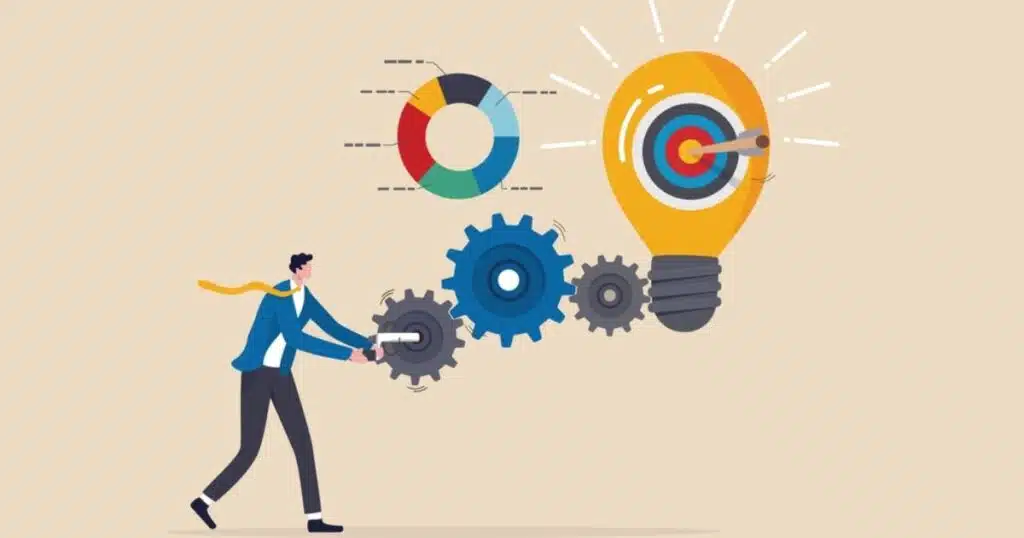
Here’s how we, as a medium-sized enterprise, have been embedding sustainable practices into our daily operations and planning for the long term.
These steps aren’t just theoretical; they’re practical changes that have truly transformed how we do business.
Embracing responsible business practices is essential in demonstrating our commitment to sustainability, attracting environmentally conscious customers, and making a positive impact on society and the planet.
| Aspect | Traditional Practice | Sustainable Practice | Benefit of Sustainable Practice |
| Energy | Use of fossil fuels | Adoption of renewable energy | Reduces emissions and energy costs |
| Waste Management | Disposal in landfills | Recycling and composting | Minimizes environmental impact |
| Supply Chain | Global sourcing | Local sourcing | Reduces transport emissions, supports local economies |
Advancing Renewable Energy And Efficiency
In our pursuit of sustainability, one of the first steps was to reduce our energy consumption.
This isn’t just about being eco-friendly; it’s also about being economically savvy.
Here’s how we’ve been making it happen:
- Switching to Renewable Energy: We’ve started sourcing a significant portion of our energy from renewable sources. This shift not only helps reduce our carbon footprint but also stabilizes our energy costs amidst fluctuating fossil fuel prices.
- Energy-Efficient Practices: From upgrading to LED lighting to optimizing our heating and cooling systems, we’ve taken steps to ensure that our operations are as energy efficient as possible. These changes have not only reduced our energy consumption but have also cut down our utility bills.
Achieving Waste Reduction And Promoting Recycling
Waste reduction is another critical area where we’ve focused our efforts.
Here’s what we’ve done:
- Recycling Initiatives: We’ve implemented comprehensive recycling protocols for all of our waste products. By doing so, we not only minimize our environmental impact but also contribute to the circular economy.
- Reducing Single-Use Items: We’ve moved away from single-use items in our office and operations. This has involved simple switches like reusable containers and cups, significantly cutting down our waste.
Community Engagement And Localized Strategies
Sustainability is as much about people as it is about the planet.
Here’s how we engage with our community:
- Supporting Local Businesses: We prioritize local suppliers and contractors, which reduces our supply chain carbon emissions and supports the local economy.
- Community Initiatives: We actively participate in and sponsor local environmental and social initiatives. This not only helps strengthen our community ties but also reinforces our commitment to local sustainability.
Economic Advantages Of Sustainable Practices
Let’s talk numbers, because sustainability isn’t just good for the planet—it’s great for business too.
Here’s what we’ve observed:
- Cost Savings: By reducing our energy use and minimizing waste, we’ve seen a direct reduction in operating costs. Sustainable practices often have an initial cost but tend to pay off in the long run.
- Attracting Green Financing: Financial institutions are increasingly offering favorable terms for businesses engaged in sustainable practices. We’ve been able to secure green financing at competitive rates, which has supported further sustainable investments.
Monitoring And Evaluating Sustainability Impact
As we dive deeper into making SteveOnDigital a paragon of sustainability, it’s crucial not just to implement sustainable practices but also to monitor and evaluate their impact.
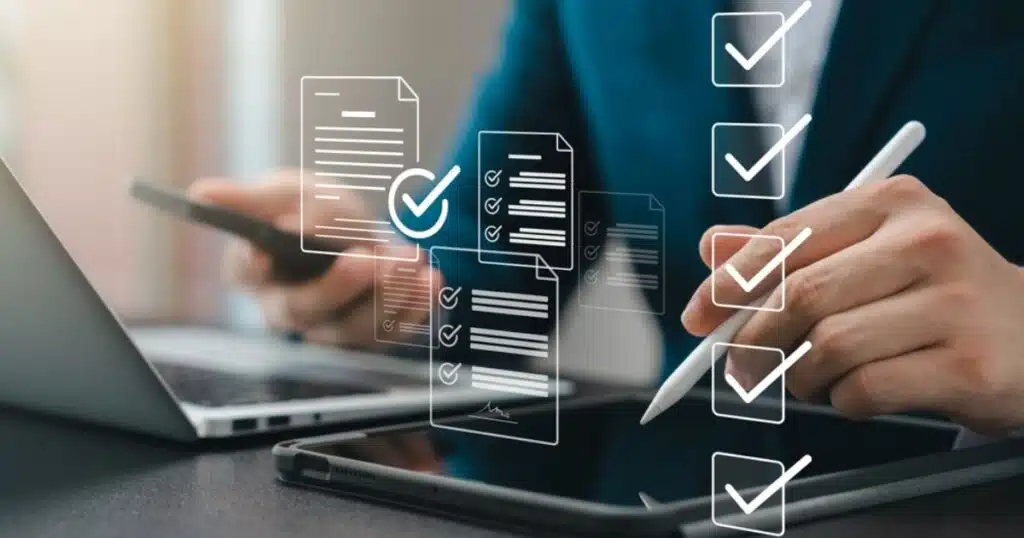
Here’s how we can effectively measure and keep tabs on our sustainability performance.
Incorporating sustainable initiatives is essential for tracking and reinforcing sustainability efforts within businesses, highlighting the importance of a dedicated approach to ecological transition and the benefits it brings to both the environment and the economy.
Using Sustainability Metrics And Standards
To truly gauge the effectiveness of our sustainability efforts, we rely on specific metrics and standards that give us a clear picture of our impact.
Here’s how we approach this:
- Carbon Footprint Measurement: We track our greenhouse gas emissions diligently to see where we can reduce our carbon footprint. This includes everything from energy consumption in our operations to logistics and supply chain activities.
- Energy Consumption Tracking: By monitoring our energy usage, we identify high-consumption areas and implement energy-efficient practices to reduce it. This not only helps the planet but also cuts costs significantly.
- Waste Reduction Records: We keep detailed records of the waste we produce and how much of it is recycled. This helps us improve our waste management strategies over time.
| Metric | Description |
| Carbon Footprint | Total amount of greenhouse gases produced, measured in CO2 equivalents. |
| Energy Efficiency | Energy usage relative to output, aiming for lower ratios. |
| Waste Reduction | Percentage reduction in waste produced compared to a baseline year. |
| Water Usage | Total water consumption, with goals to reduce usage over time. |
The Importance Of Sustainability Certifications
Sustainability certifications are more than just badges for a business; they’re a testament to our commitment and compliance with global standards.
Here’s why they’re essential:
- Enhancing Credibility: Certifications such as ISO 14001 for environmental management systems or LEED for building sustainability make it evident to our clients and partners that we’re serious about our environmental responsibilities.
- Marketability: These certifications not only boost our brand’s credibility but also make our products and services more attractive to environmentally conscious customers.
Leveraging Support From Financial Institutions
Sustainability isn’t just a cost center; it’s also an area where we can gain financial advantages through support from eco-minded financial institutions.
Here’s how we benefit:
- Green Bonds and Loans: We explore financing options like green bonds, which are specifically meant for funding projects that have positive environmental impacts. This type of funding often comes with lower interest rates and better terms, reflecting the financial community’s support for sustainable business practices.
- Partnerships with Eco-Focused Banks: By aligning ourselves with banks that prioritize sustainability, we gain access to specialized services and support that can help us further enhance our sustainability journey.
| Incentive Type | Description | Potential Benefit |
| Green Bonds | Bonds specifically intended for climate or environmental projects. | Access to cheaper capital for sustainability projects. |
| Government Grants | Funds provided by government bodies for eco-friendly upgrades. | Non-repayable funding to support transition to green operations. |
| Tax Breaks | Reductions or exemptions in taxes for sustainable practices. | Lower operational costs and encouragement for green investments. |
By keeping a close eye on these metrics and leveraging the support systems available, we not only stay true to our sustainability goals but also ensure that our business remains viable and competitive in a rapidly evolving market.
This approach not only supports SteveOnDigital in its green mission but also serves as a blueprint for other SMEs striving to make a difference.
Gaining A Competitive Edge Through Sustainability
We’ve seen firsthand how sustainability isn’t just about being green—it’s a powerful lever for competitive advantage.

Let’s talk about how sustainability can set your SME apart in today’s market and improve your overall brand image.
Why Sustainability Attracts Customers
- Consumer Preferences: Nowadays, customers are more environmentally aware and prefer to do business with companies that reflect their values. By embracing sustainability, we not only meet this demand but often exceed it, creating a loyal customer base that appreciates our efforts.
- Brand Loyalty: Our commitment to sustainable practices has significantly enhanced our brand image, making us a preferred choice for environmentally conscious customers. This alignment with their values translates into increased customer retention and recommendations.
| Consumer Preference | Percentage (%) |
| Prefer Eco-Friendly Products | 70% |
| Willing to Pay Extra for Sustainability | 55% |
| Seek Out Green Businesses | 65% |
Long-Term Benefits Of Sustainable Practices
Sustainability is a journey, not just a milestone.
Here’s how it contributes to our long-term success:
- Addressing the Climate Crisis: By reducing our carbon emissions and optimizing our resource use, we’re playing a part in addressing the global climate crisis. This responsibility towards environmental stewardship is crucial for our planet’s future and for the sustainability of our business.
- Fostering Innovation: Sustainability challenges us to rethink how we operate and innovate. Whether it’s developing new, greener products or optimizing our processes to be more energy efficient, each step towards sustainability opens new avenues for innovation.
- Job Creation: New sustainable practices often require new roles and skills. For instance, managing our recycling initiatives or overseeing our energy management systems has created more jobs within our company, contributing to economic growth and community well-being.
| Benefit | Description |
| Reduced Operational Costs | Lower energy consumption leads to decreased utility bills. |
| Enhanced Market Competitiveness | Sustainability improves brand image and customer loyalty. |
| Innovation and Product Development | New eco-friendly products meet rising consumer demand. |
Empowering SMEs To Drive Change And Innovation
At SteveOnDigital, we believe that every small and medium-sized enterprise has the power to make a significant impact.
Here’s how we can all drive change:
- Innovative Solutions: Sustainability pushes us towards creativity—finding new ways to reduce waste, energy use, and carbon emissions. This can lead to innovative products and services that not only benefit the environment but also offer unique selling points.
- Collaborative Efforts: Partnering with other businesses and local communities to promote sustainability can lead to shared growth and enhanced community relations. These collaborations often result in collective action that is much more powerful than individual efforts.
| Company | Sustainable Solution | Impact |
| GreenTech Innovations | Biodegradable Packaging | Reduced plastic waste by 40% |
| EcoEnergy Solutions | Solar-Powered Operations | Cut energy costs by 30%, increased energy independence |
| WaterWise Systems | Rainwater Harvesting for Industrial Use | Reduced water usage by 50% |
Final Thoughts
Reflecting on our sustainability journey at SteveOnDigital, it’s clear that integrating green practices into our operations has not only been a moral decision but a strategic one as well.
For SMEs looking to thrive, sustainability offers a pathway to enhanced competitiveness, customer loyalty, and business resilience.
As we continue to navigate this path, I encourage all business leaders to consider how sustainability can be woven into their core strategies—not just for the sake of being sustainable but for building a robust, future-proof business.
Let’s take these steps together, pushing towards a sustainable future that benefits our businesses, our communities, and the planet.

